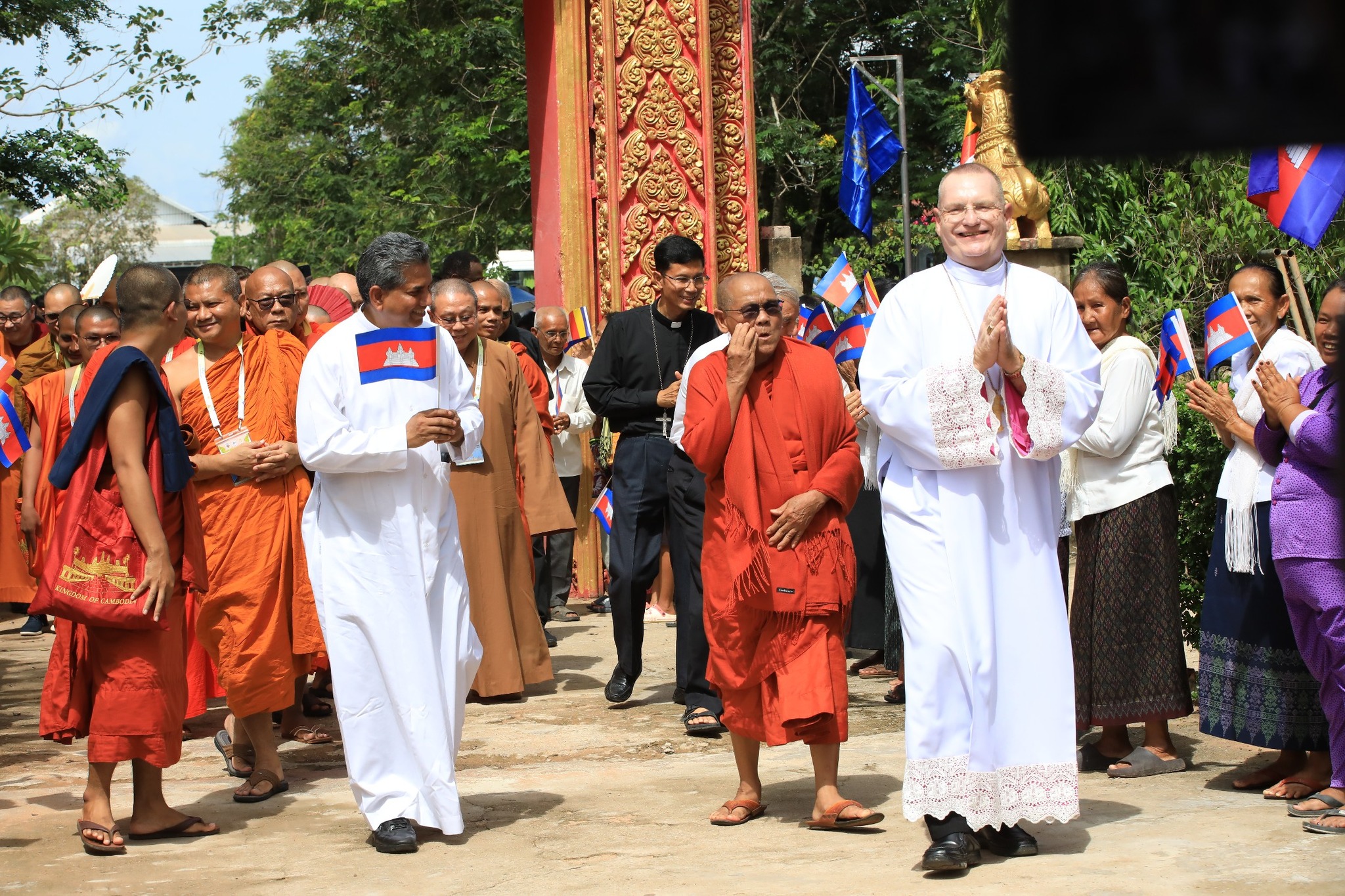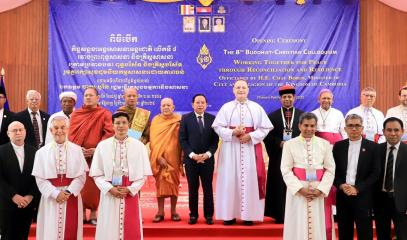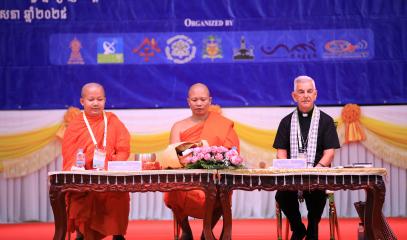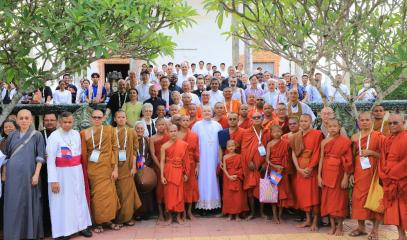Buddhists, Christians in Phnom Penh for ‘reconciliation and resilience’ as paths to peace
Some 150 delegates from Asian countries and around the world met in Cambodia’s capital for the Eighth Buddhist-Christian Colloquium organised by the Dicastery for Interreligious Dialogue. Maha Ghosananda, a venerable Theravada master close to the victims of the Cambodian genocide, was remembered. Through the “active presence of love, justice, and enduring human solidarity”, a world can be built “where peace is more than the absence of conflict.”
Phnom Penh (AsiaNews) – The Eighth Buddhist-Christian Colloquium was held in Phnom Penh, capital of Cambodia, on 27 to 29 May, bringing together some 150 Buddhist and Christian representatives to discuss “Buddhists and Christians Working Together for Peace through Reconciliation and Resilience.” At the end of the meeting, participants issued a message in which they “envision peace as the active presence of love, justice, and enduring human solidarity.”
The event was organised by the Vatican Dicastery for Interreligious Dialogue in cooperation with the Preah Sihanouk Raja Buddhist University and the Catholic Church of the Kingdom of Cambodia.
Participants came from Cambodia, Hong Kong, India, Italy, Japan, Laos, Malaysia, Mongolia, Myanmar, Singapore, South Korea, Sri Lanka, Taiwan, Thailand, Vietnam, the United States and the Holy See, plus two delegates from the Federation of Asian Bishops' Conferences (FABC),
The topic was a particularly significant issue in a country like Cambodia, which this year commemorated the 50th anniversary of the rise to power of the Khmer Rouge, which marked the beginning of the terrible genocide.
It is no coincidence that the thoughts of Maha Ghosananda (1913-2007) were repeatedly mentioned. The venerable Buddhist, master of the Theravada tradition, is considered the “Gandhi of Cambodia” for his closeness to the victims of violence and his commitment to rebuild the country after the horror of the Khmer Rouge.
“We [. . .] met,” write participants in a statement released by the Dicastery for Interreligious Dialogue, “to reflect on our sacred texts, spiritual teachings, and lived experiences as sources of healing and hope for a world fractured by violence, injustice, and exploitation.
“During these days, we have prayed, visited one another’s places of worship, studied and encountered one another in a spirit of mutual respect and friendship. Our conversations were marked by attentive listening and the discovery of shared wisdom: both traditions call for the transformation of hearts and societies through compassion and truth.”
Together they cite two important verses from their respective religious traditions. “Hatred does not cease by hatred, but only by love; this is the eternal law” (Dhammapada 5), and ““Blessed are the peacemakers, for they shall be called children of God” (Matthew 5:9).
With this thought in mind, participants said that people should pursue “paths that cultivate inner peace and foster harmony within society” and follow “The life and witness of countless Buddhist practitioners”-
Maha Ghosananda’s testimony stands out as does that of the many martyrs who lived the word of Jesus “remind[ing] us that even the most painful wounds of history can be transformed through compassion, wisdom, and spiritual resilience.”
Based on this, colloquium participants found themselves united in asserting four principles:
“● reconciliation is not the erasure of memory but a courageous process of truth-telling, healing, and the restoration of relationships;
“● resilience is nurtured by inner strength, rooted in faith and sustained by communities that uphold the dignity of every person;
“● building peace requires addressing the deeper causes of conflict – poverty, environmental degradation, social injustice, and the denial of human rights;
“● our respective religious traditions offer profound ethical and spiritual resources to face today’s challenges with compassion, courage, and hope.”
Acknowledging “the essential role of education in forming new generations in the values of nonviolence, dialogue, and interreligious cooperation,” participants stressed “the responsibility of religious leaders and communities to embody reconciliation in practical ways: by standing with the suffering, promoting justice, and cultivating inner peace.”
For this reason, when returning to one's daily experience, each participant will take from this meeting a “renewed commitment to walk together as friends and spiritual companions; a deepened appreciation for one another’s traditions and wisdom; [and] shared resolve to be instruments of peace, healing, and hope in a wounded world.”
Expressing gratitude to the communities of Cambodia that hosted this meeting – the Apostolic Vicariate of Phnom Penh, Buddhist leaders, national authorities and other organisers – the Buddhist and Christian delegates, remembered all those “who have suffered” and yet “continue to rise above adversity through resilience”, and “dedicate the fruits of this Colloquium to the flourishing of a world where peace is more than the absence of conflict.”
22/09/2021 14:34
13/04/2017 15:53










.png)










